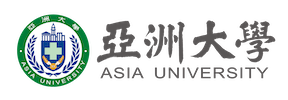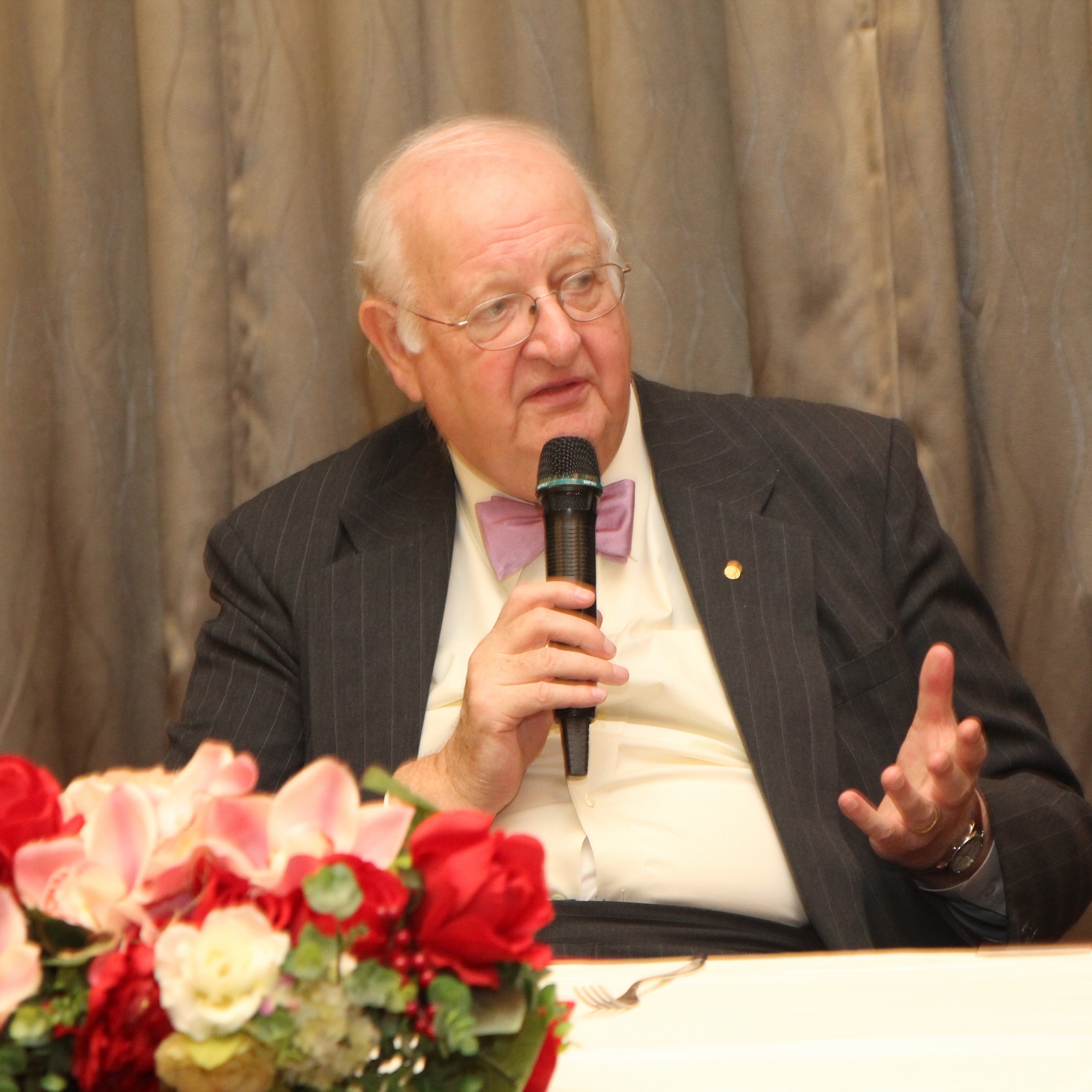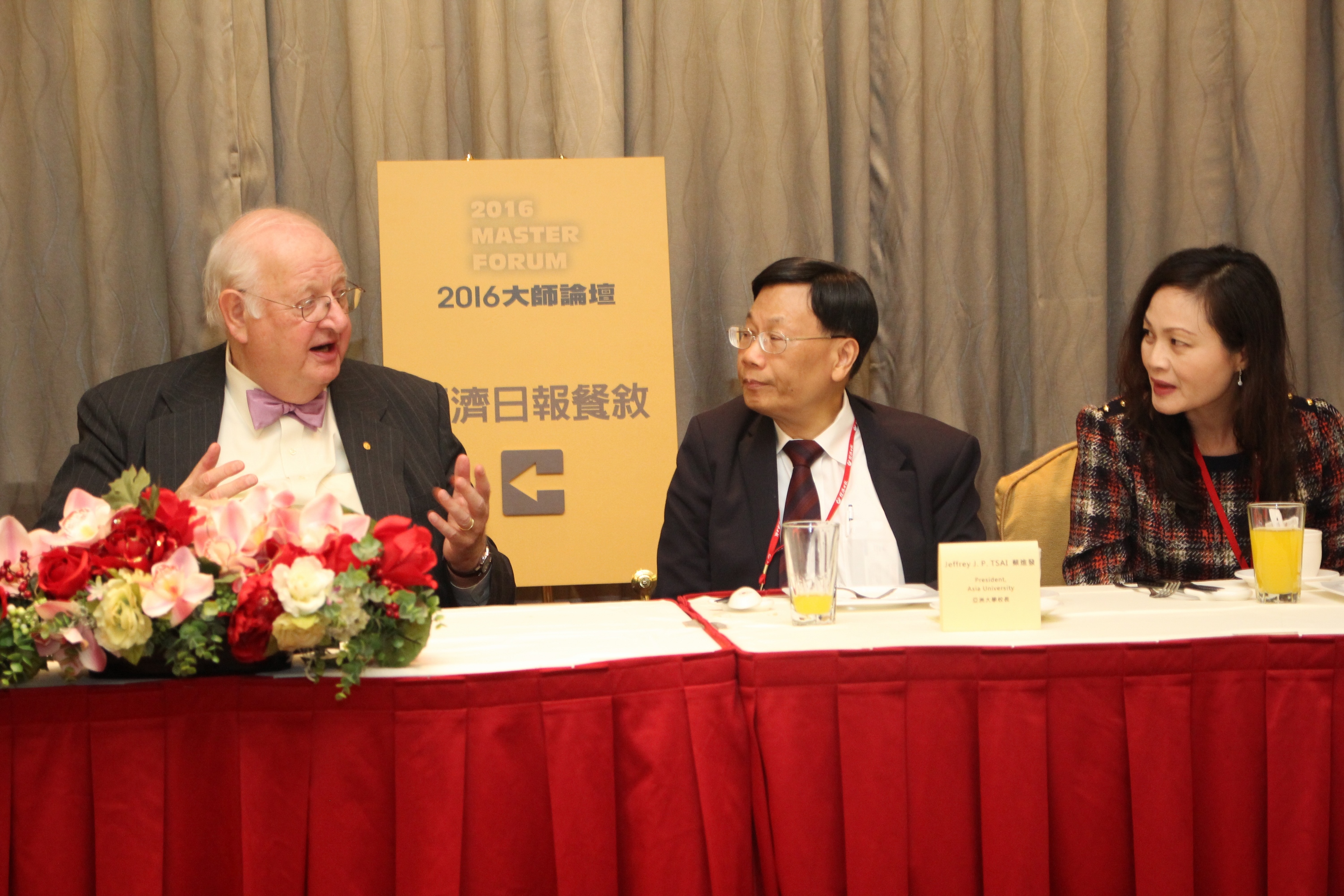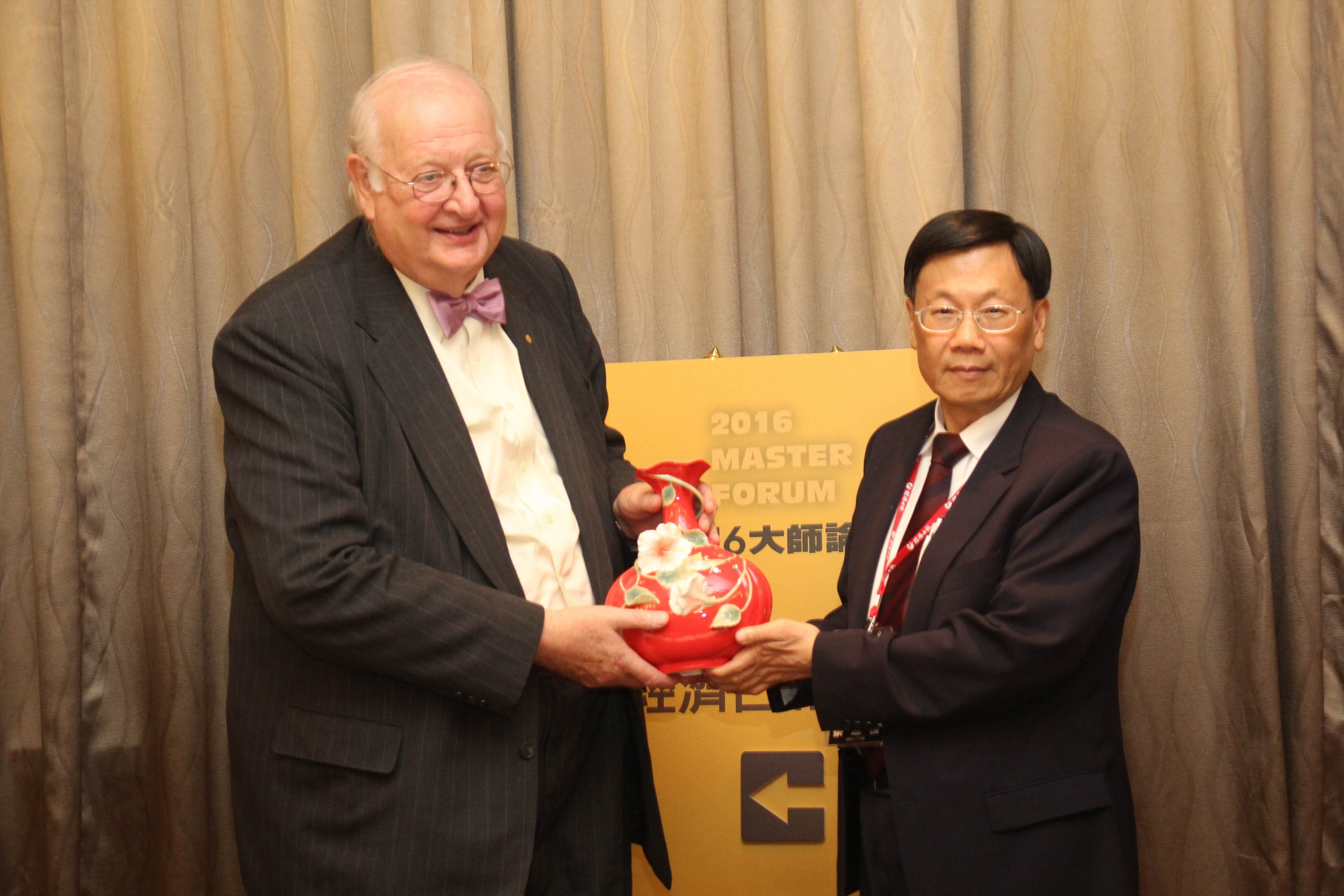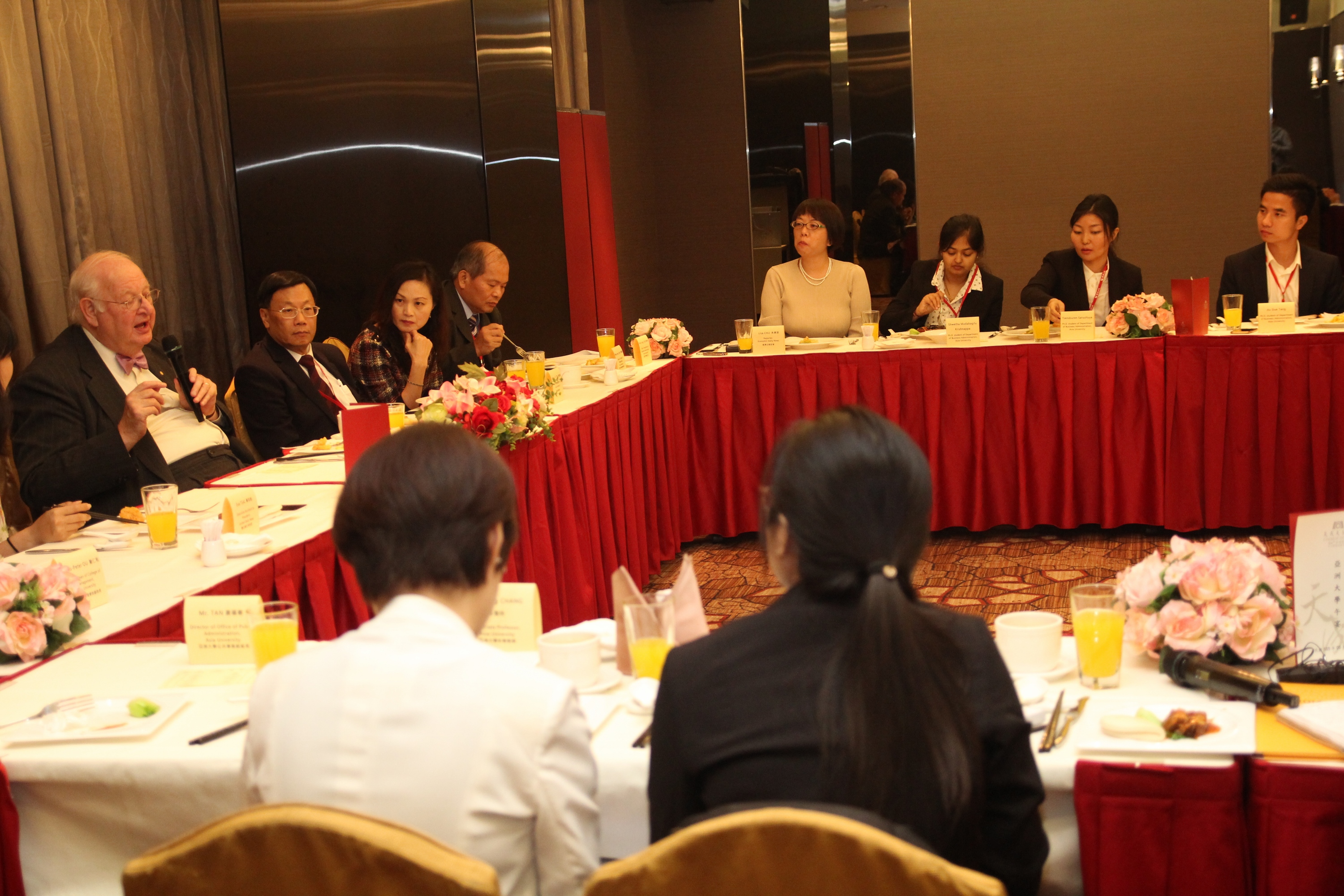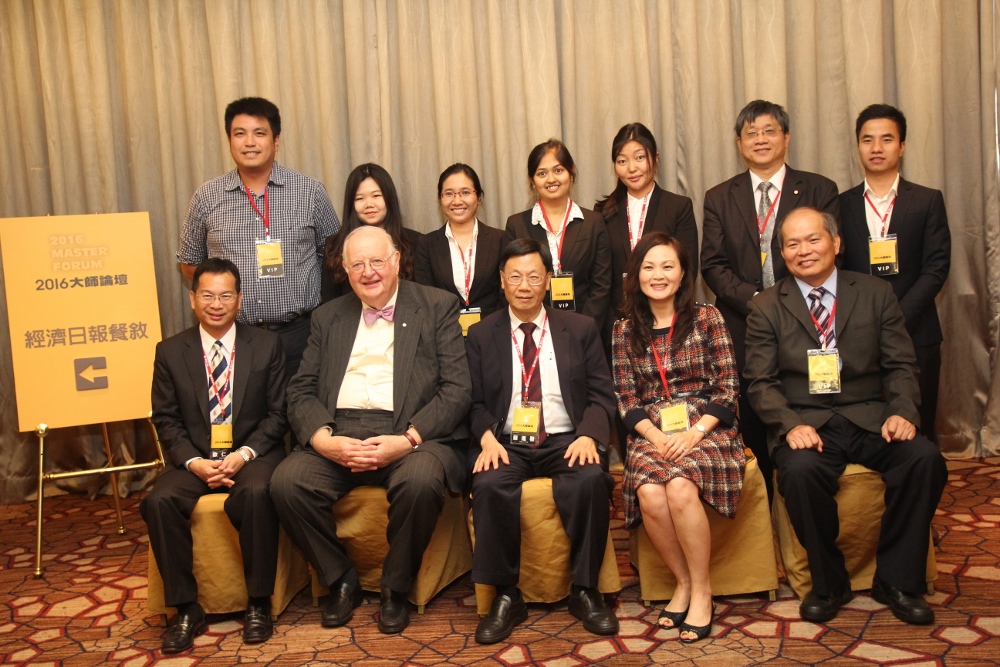Teachers and Students of Asia University Meet with Economist Nobel Laureate---
The winner of 2015 Nobel Prize for Economics, Dr. Angus Deaton: Passion, skepticism, and professional knowledge can change the world!
Teachers and students of Asia University today (18th) dined with the winner of 2015 Nobel Prize for Economics, Dr. Angus Deaton. Dr. Deaton encouraged students of Asia University: Never giving up your passions, being skeptical with everything, and being professional can change the world. The government should formulate better policies to improve education for the disadvantaged, particularly children’s education. The President of Asia University, Dr. Jing-Pha Tsai led several teachers and students, including the Dean of the College of Management, Ming-Huei Chen, and Ph.D. students of Department of Business Administration, Cai-Long Chen, Henry Tsai, and Au Due Tang, to Taipei International Convention Center to have a deep discussion with Dr. Deaton. President Tsai introduced Asia University to Dr. Deaton and stated that 15-year-old Asia University has been ranked top 100 in four world rankings by Times Higher Education. Every year President Tsai leads students to learn from the Nobel laureates who visit Taiwan. So far, teachers and students of Asia University have met with 15 Nobel laureates. President Tsai asked Dr. Deaton: “Do you feel happier after winning the Nobel prize?” Dr. Deaton laughed and replied: “It’s really hard to say. Before I won the prize, I had lots of goals that I wanted to achieve and I was happy. After I won the prize, I became busier but I can have more chances to travel.” A Ph.D. student, Henry Tsai, wondered what Dr. Deaton’s life philosophe is. Dr. Deaton responded: “Skepticism.” This attitude makes Dr. Deaton keep his passion about the work. “Can we use big data to measure the effect of corruption?” Indian Ph.D. student of AU, Shwetha Mudabagilu Krishnappa, asked to Dr. Deaton. He answered that we can apply big data to track invoices, import and export records to measure corruption. But corruption is hard to be measured.
Mongolian Ph.D. student, Tsendsuren Saruultuya, raised a question: “What are the most prominent differences and similarities between the data back then and those of the present day? What lessons can we learn from the data to achieve a better future?” Dr. Deaton responded that we have very good history about individual’s consumption and thus he is so optimistic about the future. “Which should be your first priority, education or health system?” Vietnamese Ph.D. student, Au Due Tang asked to Dr. Deaton. Dr. Deaton suggested that healthcare is very important issue for developing or undeveloped countries. Indonesian master student, Naomi Malinda, cares about Indonesian education and raised a question to Dr. Deaton: “If someone is born poor and cannot afford school, how can he/she become more skilled and avoid inequality?” Dr. Deaton replied that nowadays people have increasing opportunities of getting education because economics is improved a lot. Government should formulate better policies to improve education for the poor, especially, for children. These children are the future backbone. If they can become talented and successful, they can help improve their countries. “What would your comment be on the relationship between fortune and subjective well-being?” Vietnamese Ph.D. student posed the question to Dr. Deaton after reading his work. Dr. Deaton answered that most people have misunderstood him after reading his article. In fact, happiness includes two aspects: emotional wellbeing and life satisfaction. Emotional wellbeing means the feeling of enjoying the life. The other aspect regards to life satisfaction. More money can improve your life satisfaction, but does not guarantee your happiness.
|
